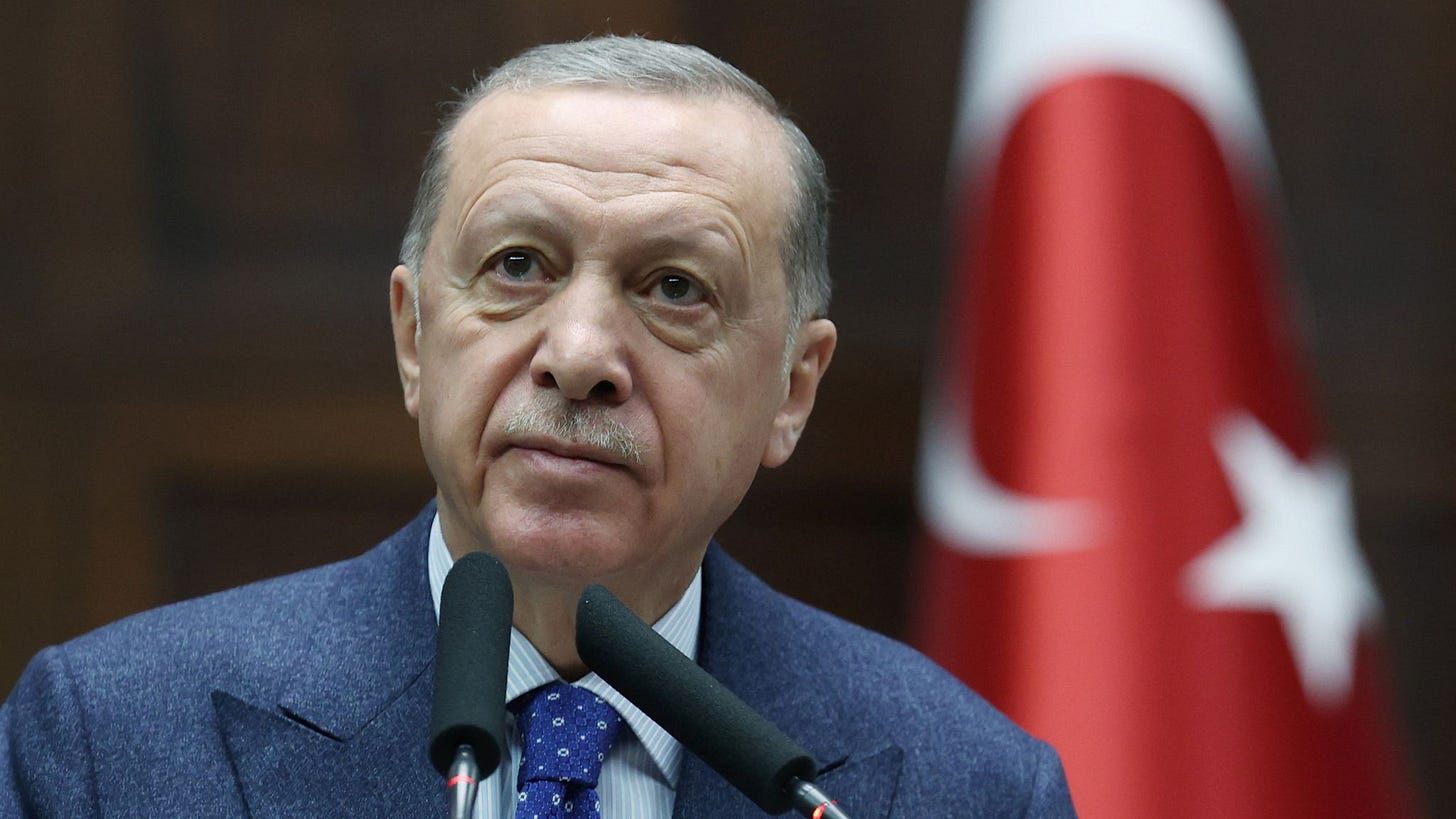Playing into the Hands of Dangerous Dictators
How Erdogan's using the Ukraine War to double down on the subjugation of his people
In the Black Sea region, the Ukraine War has become a focal point of geopolitical tensions. The United States has taken a firm stance in supporting Ukraine's sovereignty and countering Russian aggression. However, our actions in Ukraine, while driven by the pursuit of democratic principles, have unintended consequences that must be acknowledged.
As we assert our influence in Ukraine, it is essential to recognize the interconnectedness of regional dynamics. The Black Sea serves as a vital strategic area, where conflicts and alliances have ripple effects on neighboring countries like Turkey. Our aggressive actions in Syria, directly on Turkey's border, and the longstanding American influence in Iraq, which also borders Turkey, have created an intricate web of geopolitical interactions.
Erdogan's push away from our sphere of influence can be seen as a reaction to these complex dynamics. While it is crucial to condemn Erdogan's authoritarian tendencies and his alignment with leaders like Putin, we must also reflect on the broader implications of our actions. Our involvement in the Ukraine War inadvertently contributes to the narrative that the West is meddling in regional affairs and fueling anti-Western sentiment.
Acknowledging these unintended consequences does not absolve Erdogan of his actions or absolve Putin of his authoritarianism. Rather, it is an opportunity for self-reflection and a call to reassess our approach. As an anti-war progressive, I believe it is essential to balance our commitment to democratic values with a nuanced understanding of the complexities at play.
Moving forward, we should strive for a more comprehensive approach to foreign policy in the Black Sea region. This entails engaging with regional actors, including Turkey, to address their concerns and grievances while emphasizing the importance of democratic values, human rights, and the rule of law. Such an approach requires a delicate balancing act, but it is necessary to mitigate the unintended consequences of our actions and foster stability in the region.
The Erdogan conundrum forces us to confront the complexities of US foreign policy in the Black Sea region. While we condemn Erdogan's authoritarian tendencies and recognize the dangers they pose, we must also acknowledge the unintended consequences of our actions in Ukraine. By adopting a more comprehensive and nuanced approach, we can navigate these challenges, promote democratic values, and work towards a more stable and peaceful future in the region.


